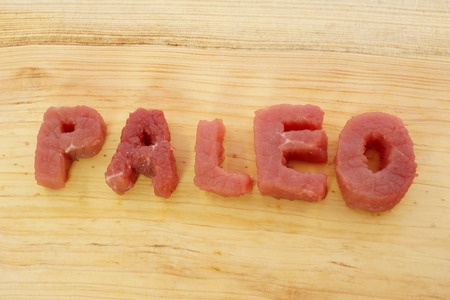Type “paleo diet” into Google and you’ll find countless threads talking about it and most have a very strong opinion towards it. Some of these sites quite literally say it is the “healthiest way to eat,” while others talk as if it’s poison every ounce of your being. Very few of these sites present the pros and cons and an informational approach. Hence my approach, an attempt at an unbiased review pointing out pros and cons so that the reader can decide and not be told the answer. Of course, to do this, we have to first decide what the paleo diet is.
The concept of paleo from a branding standpoint is to mimic the diet of the caveman. Now, of course, there is heavy branding going on, and getting caught up in the specifics of this is missing the point. Essentially the diet is based on eliminating processed foods, grains, and dairy. It is a high protein, low carb diet attaining protein mostly from animal sources. Veggies, oils, nuts, and some fruits are included in the diet. For the purpose of this article, we will leave it at that as getting too in-depth with specifics will only cause arguments. Based on this definition, let us look further at some of the pros and cons.
Pros:
- Focusing on food- this diet gets you to pay attention to what you are putting in your body on a daily basis. It provides accountability and a map for eating. It encourages the avoidance of processed foods and aims for the whole, organic foods. This is definitely a step up from the SAD (Standard American Diet) that is prevalent today. If everyone in the country took this step we would be a much healthier country.
- High Protein Low Carb- Want to cut weight? High protein low carbohydrate is the way to do it fast and effectively. Most athletes will follow that simple concept in sports nutrition at some point and be successful in certain ratios.
- Great Option for certain health conditions- Lactose intolerant? Celiac’s Disease? Gluten Sensitivity? Paleo has you covered as you are not eating Dairy or Gluten.
- Not your standard diet- I love that there is no calorie counting and Paleo is a sustainable dietary lifestyle versus a “diet”. It is something a person can embrace without having the likelihood of huge ebbs and flows due to difficulty of food choice availability.
- Group Mentality- The CrossFit community has really embraced Paleo. It practically comes packaged in some Boxes (CrossFit Gyms). Have a community supporting diet and lifestyle can be a very good thing and making it easier to stay on track.
Cons:
- Inflammation- High animal protein equals elevated inflammation in the body, period. There is no way around it, no arguing it. If you eat a diet that is high in animal protein you will increase inflammation via arachidonic acid pathways.
- Dehydration- With a high protein diet you will need more water. Drinking lots and lots of water can help with this, but more often than not, markers will show up on a blood panel such as an elevated ESR (inflammatory marker).
- Global Impact- High animal protein equals a heavy impact on the planet. It is estimated that about 18% of human-caused greenhouse gases come from livestock production. That is a huge global aspect to think about when you are considering eating meat with every meal.
- Not for everyone- There is the obvious, Vegans and Vegetarians will not be on board with this diet. There are also health conditions that would not benefit from a Paleo diet. People with inflammatory conditions such as arthritis, rheumatoid arthritis, lupus, etc, or those with heart conditions. There are much better options for these individuals. This directly counteracts number 3 of the pros so I would say it is pretty balanced in this case.
- Excuse to indulge in meat- As a health care practitioner, I have seen many patients that operate under the theory that Paleo means eat bacon all day, every day. They will look at paleo as a solid reason to offset any hope for a balanced diet. This can be argued for other diets as well (in fact I made a similar argument in a vegan diet blog). Balance is key to food.
- Elevated Cholesterol- Eating a diet where often every meal contains animal protein can have a negative effect on cholesterol. Many Paleo eaters find themselves on a high protein, high fat, low carb diet which can lead to an increase in LDL, decrease in HDL, and an increase in total cholesterol. In the event that an annual blood panel shows a negative increase in cholesterol, perhaps the Paleo diet should be reconsidered, especially in those with a genetic predisposition to elevated cholesterol. Interestingly, there are some studies performed that show people that switch to the Paleo diet actually have an improvement in Cholesterol levels. One study showed a decrease in LDL of up to 22%. The reason this is in the “con” section is it also shows the inconsistency of the diet standards. The Paleo diet can vary so much as to what is eaten, therefore sometimes having a positive effect and sometimes having a negative one. As mentioned in number 5, if the Paleo Diet is not well balanced, then is can be hazardous (as is the case with many other diets).
There is a brief synopsis of Paleo’s pros and cons. Part 2 coming soon will be a look at the Paleo diet from an East Asian Medical perspective. Don’t forget to subscribe if you want to check it out! What are your thoughts regarding the Paleo diet? Sound off below!

